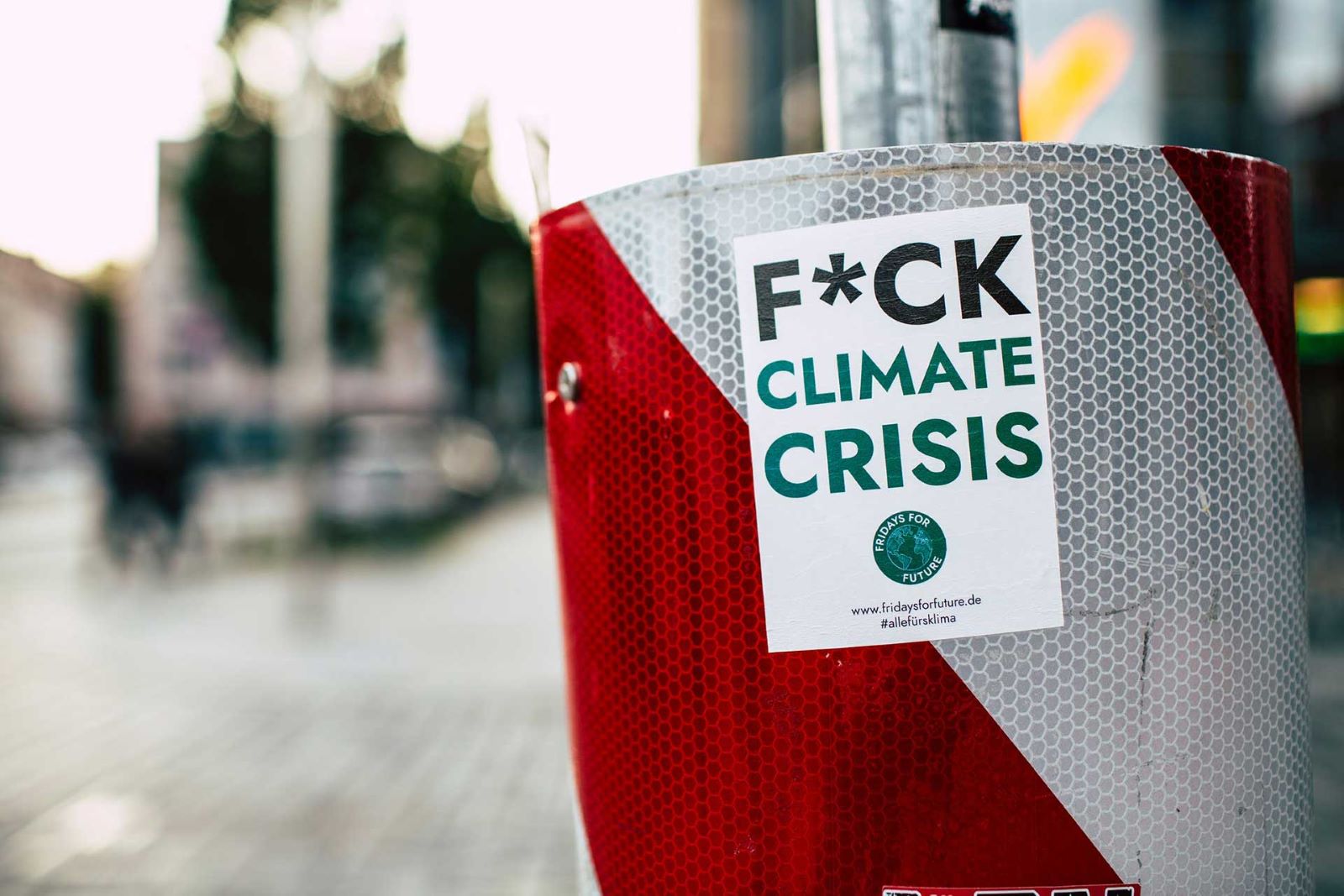
Never has the world been so accessible, so readily explored. We can now skip halfway across the globe in a matter of hours, travel to wild places previously off-limits, and digitally share the adventures we experience with millions. That's amazing.
Yet despite this technological progress and new-found convenience, we also live in an age of crisis. Climate change and biodiversity loss threaten the livelihoods of billions, not to mention their tragic impacts on the world's incredible natural places. As adventurers, we are privileged to be able to experience such places; but along with that comes a responsibility to protect them.
Reversing these trends takes both systematic and individual change. The way society functions will have to change, but so will the way we go about our own lives. We are constantly bombarded with ways we can 'make a difference', from refusing plastic straws to signing online petitions, but it is easy to feel that we are only a tiny cog in a gigantic wheel. Yet, among all these challenges to the way we live, there are some areas that stand out as the most significant by a long shot. The decisions we make can ripple through society, and change the world for the better.
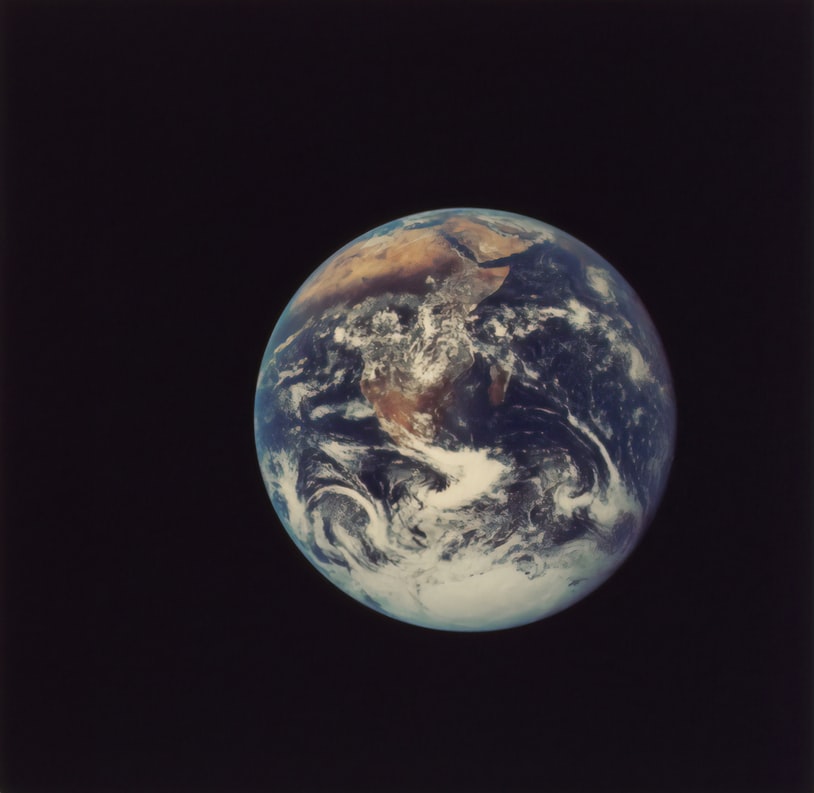
"Flight shame" is a relatively new phenomenon, most obviously fuelled by Greta Thunberg's adamant commitment to trains and sailboats. Not flying is a big ask for many, especially for us adventurous types. But with some flexible thinking, a solution often presents itself – and can make our lives more interesting while we're at it.
The following three questions are a good way to systematically ask yourself whether you can improve your travel decisions. In terms of emissions, the most preferable come first; if that condition is impossible to fulfil, you move on to the next one.
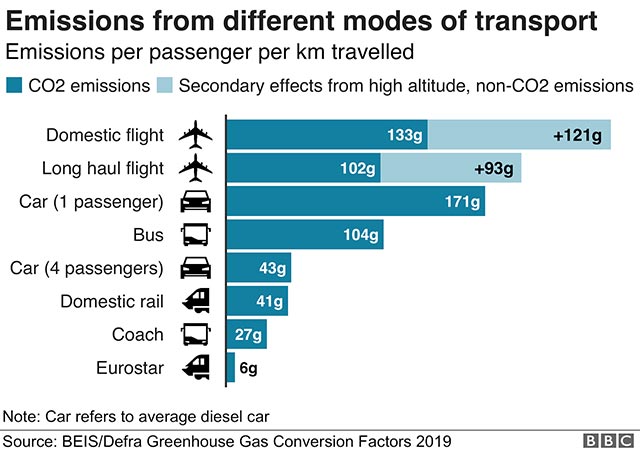
But it’s not just international travel that needs considering. For example, swapping to a car-free commute was found to be the most impactful individual action according to one study. If you can get there by bike, on foot or by public transport, that can make a huge difference to your carbon footprint – and potentially make your commute healthier and more interesting too.
Everybody eats, and everything we eat has an impact. This means that changing our diets is a great way to make a difference. Yet there is a lot of confusion about what makes a sustainable diet. Is local beef better than soy shipped across the ocean? Are organic vegetables, that take up a lot of land and water, better than crops doused in chemicals? What about free range versus factory farms?
We can debate these questions, forever, but when it comes to the climate crunch, most of them are comparatively trivial. If you want to reduce the carbon footprint of your diet, there is one thing you can do that makes everything else pale in comparison: don't eat beef. As the graph below shows, beef's carbon footprint is leagues ahead of any other sort of food. If cattle were a nation, they'd be the world's third largest emitter after China and the US. This means that, if you eat beef fairly regularly, substituting any other food in its place could instantly halve your diet's carbon footprint. Reducing intake of other foods, especially animal products, lowers your impact even further, but if you're looking for where to start, cutting out the cows is as a straightforward a solution as you could hope for.
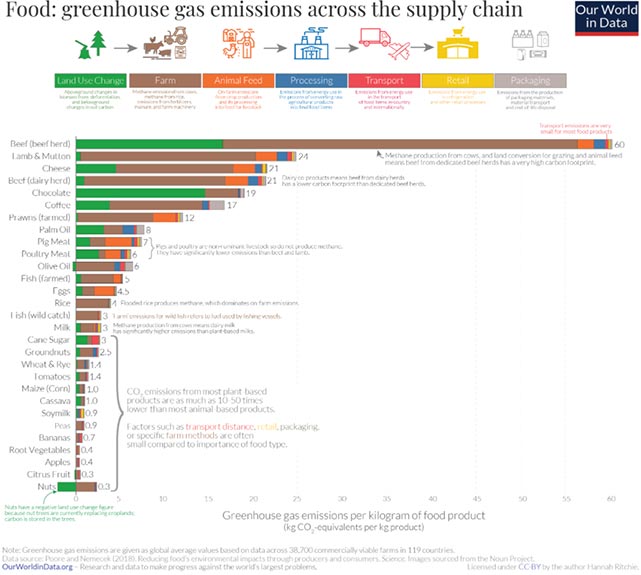
There are lots of reasons for this. For a start, cows are incredibly inefficient as sources of food for humans: they take a huge amount of food, water and land to produce a relatively small amount of beef. The caloric (and protein) efficiency of beef is in the region of 3%, which means that for every 100 calories input (in the form of plants), only 3 calories end up in the end product. According to the FAO, 40% of all crops produced go to feed livestock – this means that any agriculture-related worries, such as the effects of monocultures or chemicals, are made exponentially worse by the livestock industry. Cows also burp out vast quantities of methane, a potent greenhouse gas. When all this is added up, other considerations – like food miles, processing and storage – are hardly worth our attention.
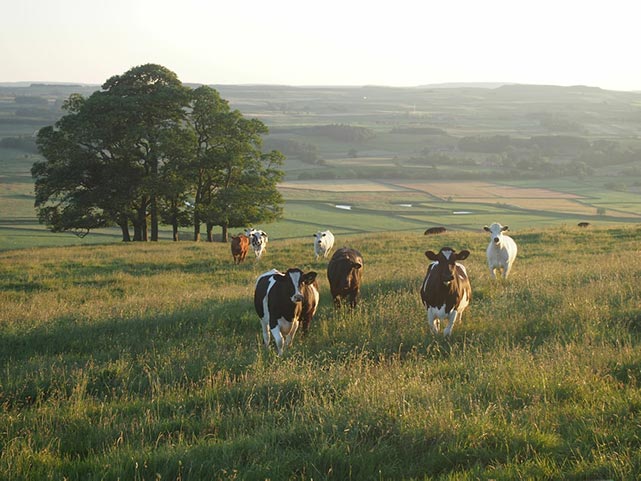
Individual and societal changes are not separate from one another. Humans are social creatures; if we see somebody change their behaviour, that can make us question our own. This ripple effect can have big implications for society. For instance, interest in veganism has skyrocketed in the last decade. Similarly, an online survey found that half of respondents had started flying less because they knew someone who had given up flying. We might feel small, but actually our choices can leave a deep impression on those around us.
Adventurers are pioneers. We like to try new things, to challenge ourselves, and to enjoy these challenges with others. While these principles might more often be applied to scaling a spicy rock face, they can just as easily be applied to changing social norms. If we want to continue exploring, we have to become ambassadors for societal change. Communicating these solutions to the people in our lives, whether friends, family or followers, can have big knock-on impacts. Leading by example is a fantastic way to set society on the right path.
Earth day 2020 is going to be the biggest yet. Take a peek at our ultimate guide to Earth Day 2020 including events to watch out for.